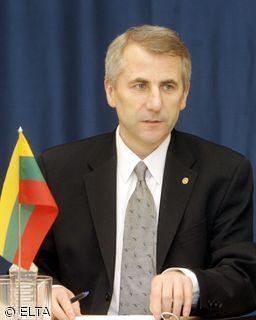The government will recommend a 3.5% inflation target for the end of 2006, Finance Minister Tibor Draskovics announced
Published:
1 November 2004 y., Monday
The Hungarian government will recommend a 3.5% inflation target for the end of 2006, Finance Minister Tibor Draskovics announced. Draskovics said annual inflation will be 6.8%–6.9% for 2004, and will continue to slow in 2005 to a yearly 4.5%. National Bank (MNB) President Zsigmond Jбrai said the 3.5% target for 2006 is feasible provided fiscal policy remains strict.
52.6% of revenue in the 2005 budget carries medium or high risk, the State Audit Office (БSz) found. The office said the government’s target for GDP growth of 4% in 2005 is realistic, but not without risk, and added that the general government deficit target of 4.7% of GDP is riskier. The office also said the 2005 budget is not detailed enough in its description of expenditures related to public-private partnerships (PPPs).
The government plans to present an alternative to an БSz proposal that would force it to make a new budget if the original’s targets are exceeded by 2.5%. The government proposes allowing a 5% overshoot of budget targets. Forcing the government to create a supplementary budget would mean the new budget has to be approved by Parliament.
The government issued Ђ1 billion in eurobonds, State Debt Management Rt (БKK) announced, saying it would use the issue to refinance debts maturing in 2004. The terms of the issue are the best of all government-issued eurobonds, the БKK press release stated. They mature in seven years, and pay annual fixed interest of 3.625%.
The government earmarked Ft 17 billion (Ђ69 million) for housing subsidies in next year’s budget. The budget includes a Ft 3.4 billion allocation for a new type of rent subsidy aimed at young people with few financial resources. Another Ft 4 billion is set aside for a fund providing state guarantees for housing loans.
Šaltinis:
bbj.hu
Copying, publishing, announcing any information from the News.lt portal without written permission of News.lt editorial office is prohibited.
The most popular articles
 When you fill up your car with petrol you often find that your hand will reek of petrol unless you have worn gloves.
more »
When you fill up your car with petrol you often find that your hand will reek of petrol unless you have worn gloves.
more »
 The EU is going through its worst recession since WWII. Inflation has slowed, but employment and public finances are hard hit. The situation should stabilise in 2010.
more »
The EU is going through its worst recession since WWII. Inflation has slowed, but employment and public finances are hard hit. The situation should stabilise in 2010.
more »
 In the current economic environment, banks should carefully analyze the current and future total cost of ownership of their technology assets, and evaluate the outsourcing alternative.
more »
In the current economic environment, banks should carefully analyze the current and future total cost of ownership of their technology assets, and evaluate the outsourcing alternative.
more »
 Commission proposes first EU law on hedge funds and issues guidelines on bank pay practices.
more »
Commission proposes first EU law on hedge funds and issues guidelines on bank pay practices.
more »
 On 30 April, Lithuania’s Minister of Foreign Affairs Vygaudas Ušackas took part in the round table discussion “The European Union’s External Trade Policy and Lithuania’s Positions: Threats and Possibilities for the Lithuanian Industry”.
more »
On 30 April, Lithuania’s Minister of Foreign Affairs Vygaudas Ušackas took part in the round table discussion “The European Union’s External Trade Policy and Lithuania’s Positions: Threats and Possibilities for the Lithuanian Industry”.
more »
 Since 28 April this year, the clients of AB Bank SNORAS will be able to process their financial matters in a clearer and more user-friendly environment of “Internet Bank+” system.
more »
Since 28 April this year, the clients of AB Bank SNORAS will be able to process their financial matters in a clearer and more user-friendly environment of “Internet Bank+” system.
more »
 2009 ageing report: Europe tackling the challenge of an ageing population but the recession threatens a setback.
more »
2009 ageing report: Europe tackling the challenge of an ageing population but the recession threatens a setback.
more »
 More choice, investment and security of supply lie at the heart of the 3rd energy package.
more »
More choice, investment and security of supply lie at the heart of the 3rd energy package.
more »
 Swine flu, a new strain of influenza, has so far left more than a hundred dead. But in one sector, the illness could have huge benefits.
more »
Swine flu, a new strain of influenza, has so far left more than a hundred dead. But in one sector, the illness could have huge benefits.
more »
 Central European bargain hunters are crossing borders for the best buys. Slovakian shoppers in Hungary are making the most of their new eurozone membership.
more »
Central European bargain hunters are crossing borders for the best buys. Slovakian shoppers in Hungary are making the most of their new eurozone membership.
more »